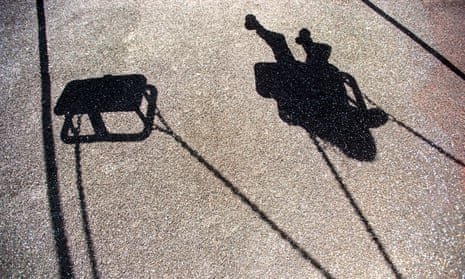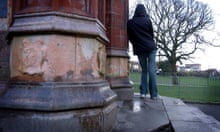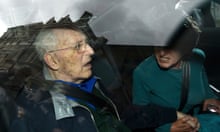A new criminal offence should be created for people working in positions of trust who fail to report allegations of child sexual abuse, according to a landmark report that also calls for the creation of a national scheme to compensate abuse victims for the “incalculable” harm inflicted on them.
The final report of the independent inquiry into child sexual abuse (IICSA) in England and Wales, seven years after it was launched, says children have faced “limitless” cruelty with the complicity of institutions and that the problem remains “endemic”, with online abuse growing exponentially.
While child sexual abuse has gained greater visibility in recent years because of a number of scandals involving public figures, the inquiry said it still did not receive the attention it deserved.
To that end it calls for the creation of a child protection authority – one for England and one for Wales. It was one of three core recommendations, the other two being financial redress for victims and a duty of mandatory reporting of child sexual abuse on people who work in regulated activity or in positions of trust.
Prof Alexis Jay, the chair of the inquiry, said: “For too long, child sexual abuse has been considered a problem of the past, despite lifelong impacts on its young victims. Its extent cannot be underestimated; the sexual abuse of children is an epidemic that leaves tens of thousands of victims in its poisonous wake and some will never recover.
“We heard time and time again how allegations of abuse were ignored, victims were blamed and institutions prioritised their reputations over the protection of children. The nature and scale of the abuse we encountered were horrifying and deeply disturbing.
“As a society, we simply cannot file it away and consider it a historical aberration when so much of what we learned suggests it is an ever-growing problem, exacerbated by the current and future threat of the internet.”
A significant portion of the 458-page report, published on Thursday, is dedicated to the voices of victims and survivors, including graphic detail of the abuse they suffered.
They speak of being disbelieved by figures in authority, including social workers, healthcare professionals, police officers and teachers, and of the devastating effect abuse had on their lives. This included dependence on alcohol and drugs, problems with relationships, diminished educational and employment prospects and vulnerability to future abuse.
Aparna, one of more than 6,200 victims who shared their experiences of abuse through the inquiry’s listening exercise, the Truth Project, said: “I’ve tried to build up my self-esteem but it can unravel in seconds. I’m afraid to be truly joyful because I feel tainted – damaged goods.”
The report details appalling failings across the most prominent institutions, from government to the police and religious organisations. “Institutions prioritised their own reputations, and those of individuals within them, above the protection of children,” it says.
The inquiry found that those charged with investigating allegations showed deference to persons of prominence, such as councillors and MPs, and they were sometimes ignored when “politically inconvenient”.
The 20 recommendations made by the IICSA also include the creation of a cabinet-level minister for children; a ban on the use of pain compliance techniques on children in custodial institutions; and a requirement for the registration of care staff in residential care and staff in young offender institutions and secure training centres.
after newsletter promotion
Addressing problems posed by the internet, which the inquiry says has led to “extraordinary, soaring” numbers of victims, it calls for pre-screening for known child sexual abuse by internet search providers before material is uploaded, and legislation to make internet companies improve age verification.
The report says the response to abuse has been affected by austerity and consequent cuts to public services, including the police, children’s social care, the Crown Prosecution Service, health and education. Additionally, voluntary and charity sectors have lost funding via the commissioning process and direct grants at the same time as demand for children’s social care has increased significantly, it says.
The inquiry rejected the suggestion that the mandatory reporting law should provide exemptions for some faith-based settings or personnel – in particular, in the context of confession – concluding: “Neither the freedom of religion or belief, nor the rights of parents with regard to the education of their children can ever justify the ill-treatment of children or prevent governmental authorities from taking measures necessary to protect children from harm.”
It said it expects the UK and Welsh governments to act on its recommendations promptly and to publish details of the steps they have taken within six months.
The home secretary, Grant Shapps, said: “This is the start of a new chapter in our efforts to put an end to this terrible crime. I want to give assurances: where we can act quicker, we will.
“I will use all available levers to protect our children, to improve the law enforcement and criminal justice response, provide the support victims and survivors deserve, and ensure all institutions and leaders are properly held to account.”









